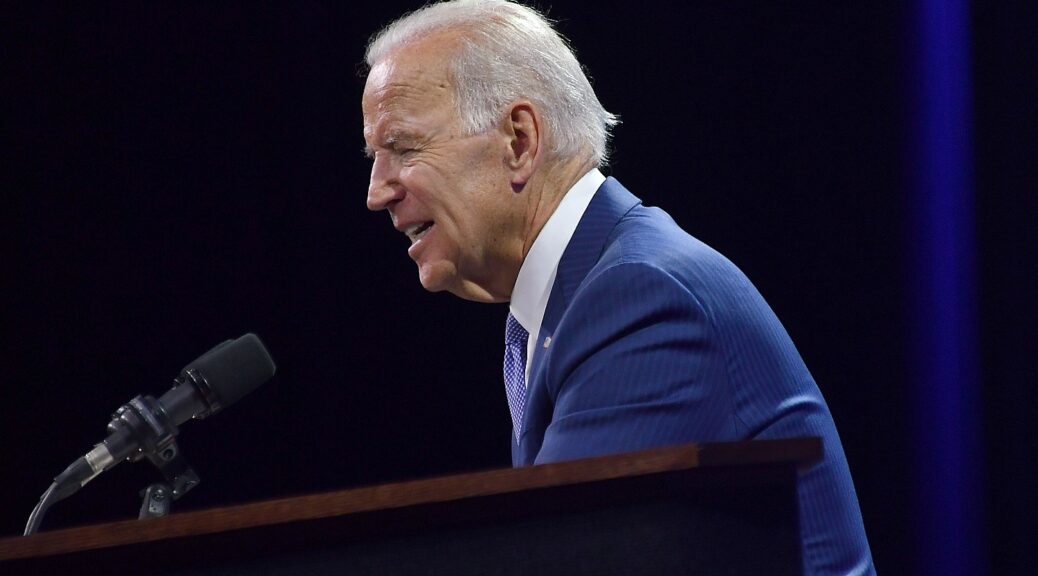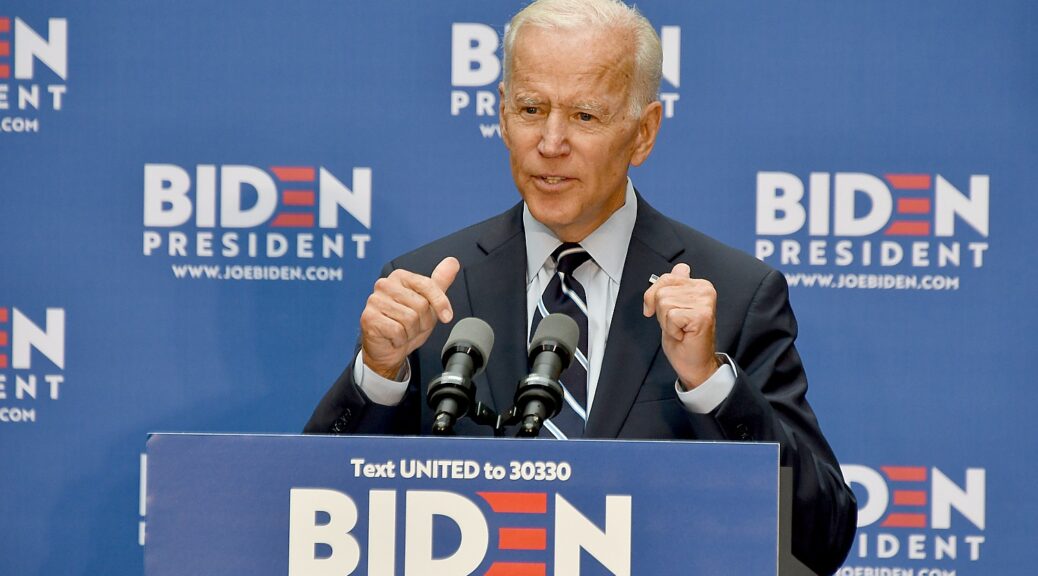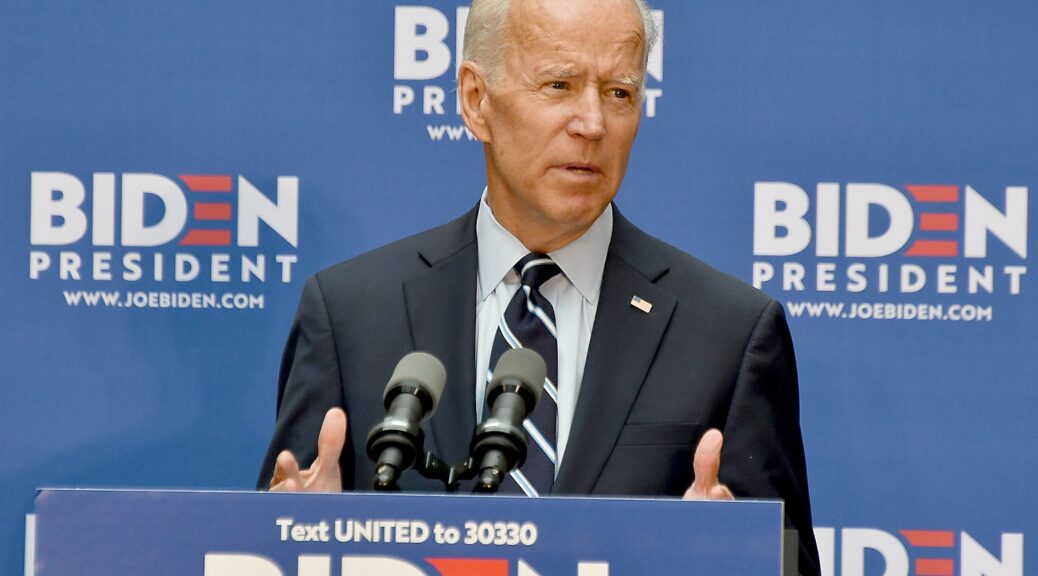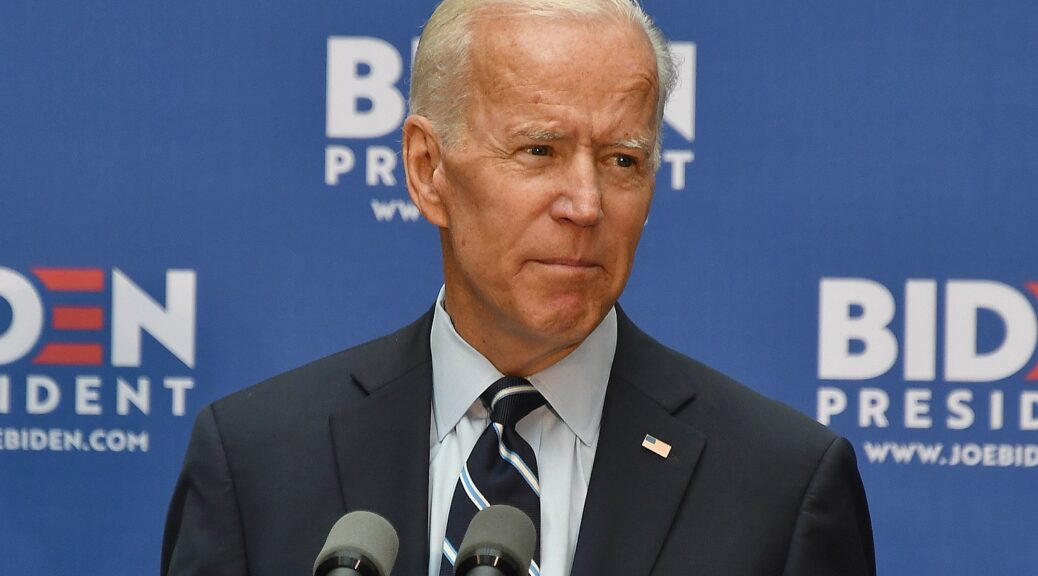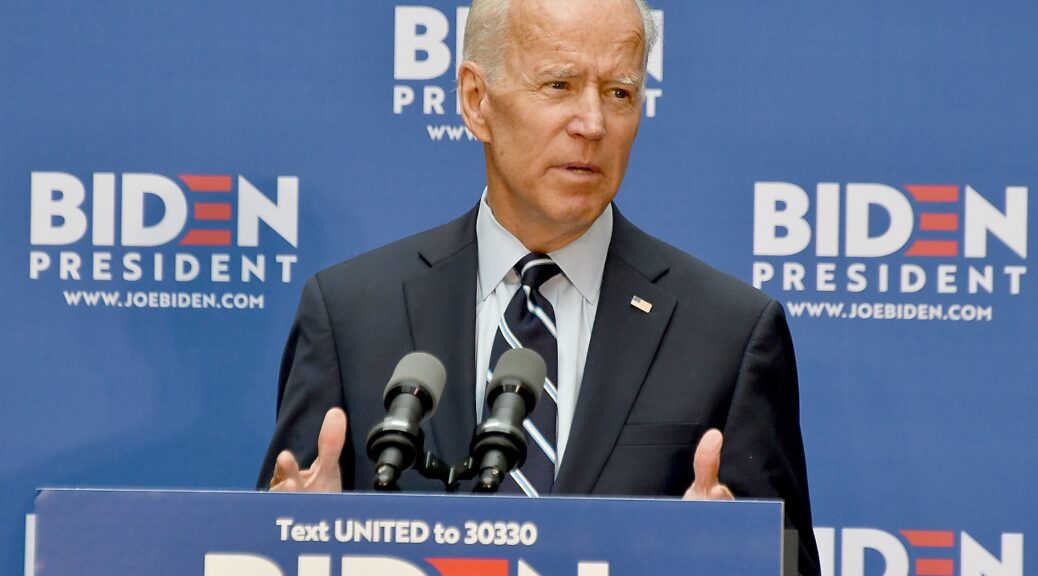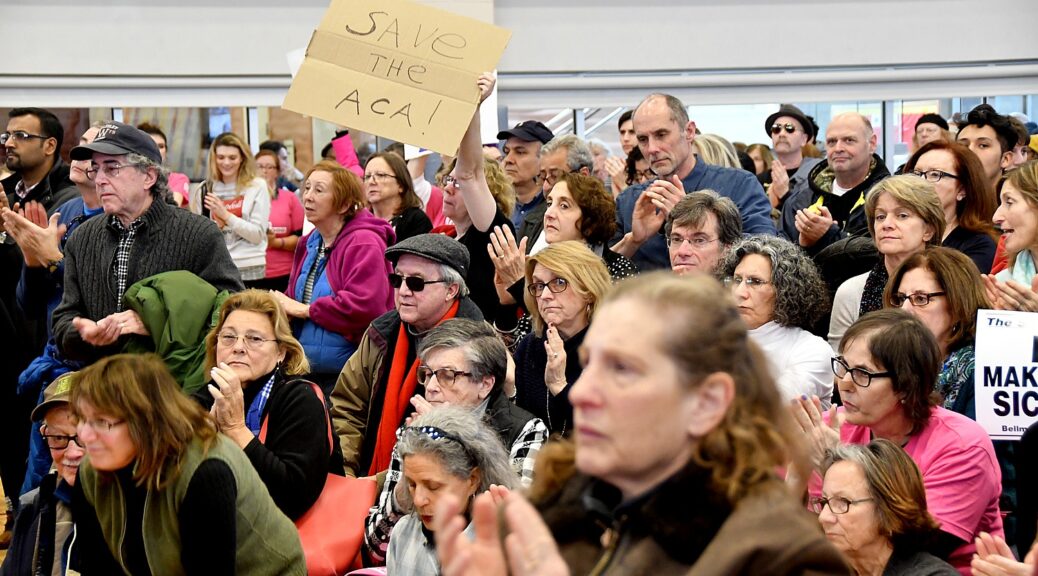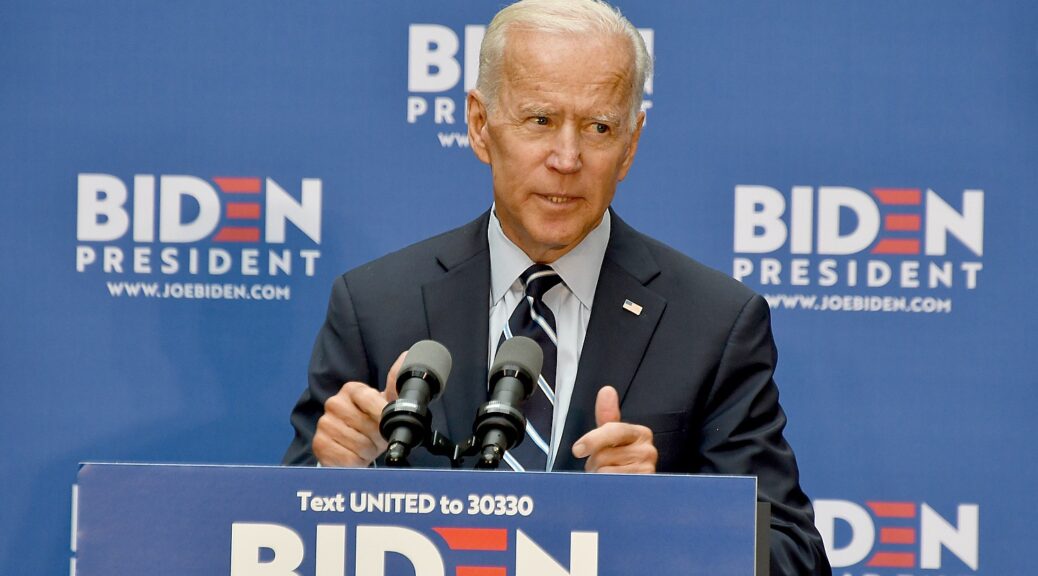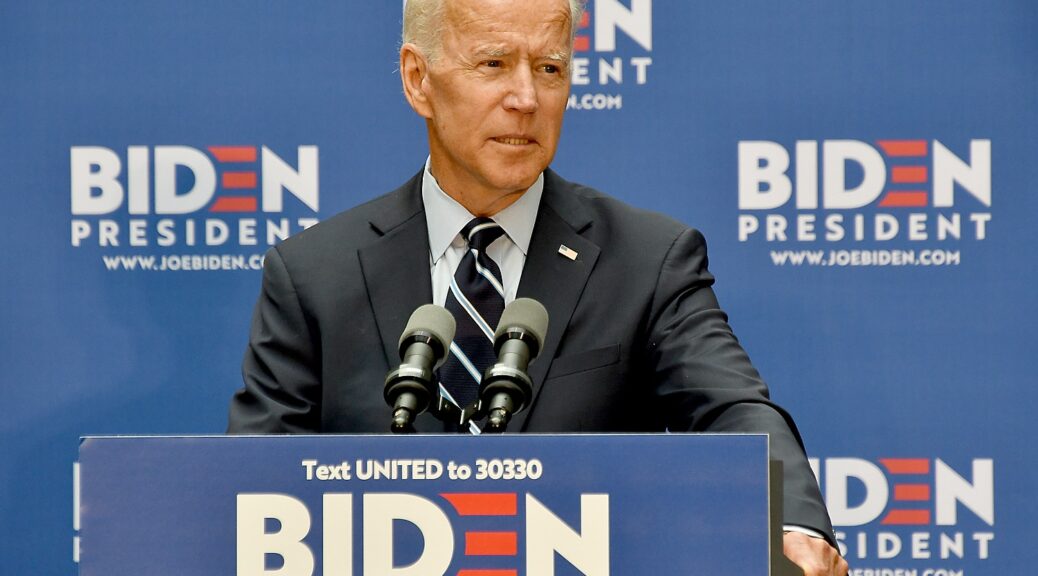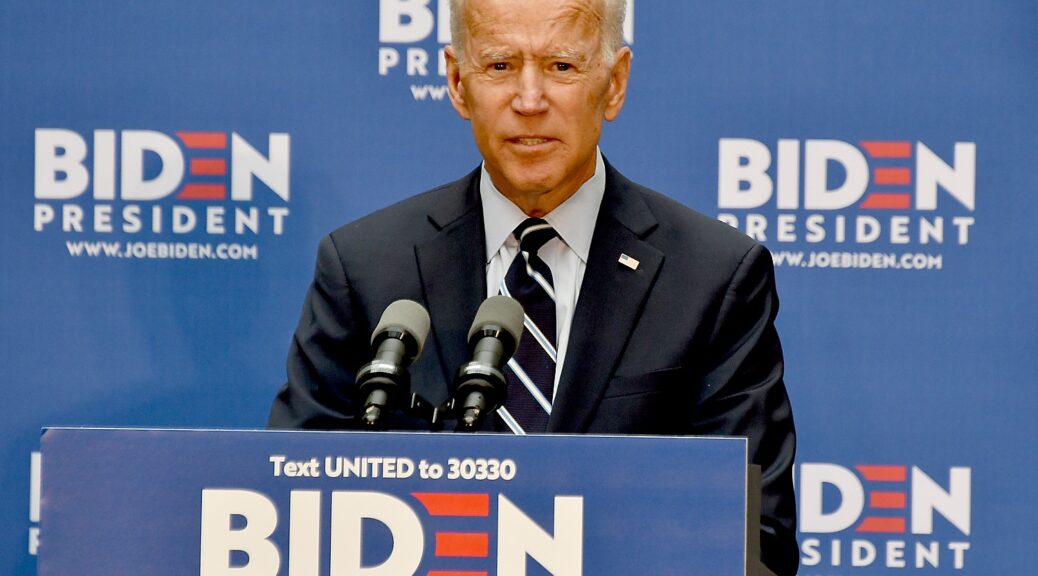
Absolutely none of the plans to mitigate against the twin crises posed by the coronavirus pandemic on Americans’ healthcare and the nation’s economy have come from Trump, but rather he has played catch up finally responding to the pleas and shaming from Congressional Democrats, who turned the trillion dollar slush fund for corporations into a $2.2 trillion relief bill, and from Governors and Mayors desperate for life-saving medical equipment and supplies. But his administration has proved woefully inadequate to implement. The $350 billion earmarked to rescue small businesses that is supposed to go into effect has no actual means; the billions in relief checks that are supposed to go to individuals are bogged down by a dysfunctional administration. While Trump has used the coronavirus pandemic to attack Democrats, and take advantage of the limited ability of Democratic candidates Joe Biden and Bernie Sanders to campaign by turning briefings into rallies and extort praise and adulation from desperate government officials, Biden has sought to point to the contrast his leadership would offer.
Joe Biden released a “Make It Work” checklist to provide the federal government with specific recommendations surrounding the implementation and oversight of the CARES Act, the recent stimulus package passed by Congress to ensure the economic relief and recovery effort works for families, workers, and small businesses. (Recall Trump’s signing statement which basically obviated the oversight the Democrats put into the Act.) The checklist builds on Biden’s plan to combat coronavirus (COVID-19) released on March 12 and his emergency action plan for the economy released on March 26. This is from the Biden campaign –Karen Rubin, news-photos-features.com.
Implementation and Oversight of the CARES Act:
The Biden “Make It Work” Checklist
1. Making Americans who lose their jobs financially whole by ensuring that they get their unemployment insurance on time and in full. The CARES Act provides for the equivalent of full wage replacement for average American wage-earners. With millions of Americans making claims for lost jobs in a single week – nearly five times the previous record – getting workers their wage replacement checks fast has never been more important. Let’s be clear: even with new funds from the CARES Act, if the White House does not do everything in its power to help all of our states swiftly implement these new unemployment (UI) benefits, states will be even more overwhelmed. Our states will need help with staffing capacity, technology solutions, training for new claims processors, and best practices from other jurisdictions. This must happen immediately – before the crush of UI claims becomes even more overwhelming. Americans desperate for relief to pay the rent and keep food on the tables for their children will judge states’ performance on the number of UI claims successfully processed, the number of Americans paid as quickly as possible, and how quickly they receive relief – beginning this week. Biden would:
Establish a UI delivery team to help states solve any implementation problems they face. He would authorize that team to provide funds beyond the $1 billion appropriated to states to add staffing and server capacity.
Apply a financial version of the Defense Production Act to ensure that banks that have contracts with states deliver unemployment benefit payments to laid-off workers do so in a timely manner, and that they offer prompt electronic payment options.
Issue clear guidance about the broadest possible eligibility and communicate that guidance effectively so that all Americans understand what benefits they are entitled to.
Make clear that gig workers can get partial benefits when they are still working if their compensation and hours have been significantly reduced.
Work with Congress to extend the provisions for the duration of the crisis. Four months is not enough to provide families the aid they need throughout this economic crisis.
2. Get direct cash relief as quickly as possible to as many Americans as possible. The CARES Act provides for $1,200 per person and $500 per child in cash relief for millions of working families. Biden would prioritize getting Americans the cash relief they are owed and making it easy to access the relief. The Trump administration is already failing at this by causing needless worry for millions of seniors and people with disabilities. Biden would do so by:
Delivering the payments electronically whenever possible and delivering pre-paid debit cards to those who don’t have bank accounts. Payments should not be delayed just so that President Trump can put his signature on a physical check.
Making payments automatic for millions who haven’t filed a tax return based on information the government already has– and streamlining filing for others. The Trump Administration has needlessly confused millions by first announcing that Social Security recipients and people with disabilities would have to file a tax return to receive their stimulus rebate, before reversing themselves. The reversal is welcome. The CARES Act clearly allows the Treasury Department to send cash relief payments automatically to millions of seniors, people with disabilities, veterans, and others without burdening them with new paperwork during a pandemic. Treasury can send these payments using information that the Social Security Administration, the Veterans Administration, and other agencies already possess to get payments to these people. From the start, Biden would have announced an automatic, clear, and simple process of getting stimulus payments to these individuals. And he would extend these same automatic payments to others, like veterans, who still would not get automatic payments under the Administration’s plan. For those who do need to file a new form, Biden would establish an immediate, streamlined cash relief application process to make sure the neediest Americans are being taken care of. There is no reason that most of these Americans cannot be paid within days of filing this paperwork with the right focus, the right process, and the right prioritization.
Expanding the CARES Act relief to dependents left out of the legislation. Democrats fought and won cash relief for most working families, but the legislation left out relief for dependents aged 17 and older, whether a high school student or an older relative living with a family. That is a huge hole in support for working families. As he pushes for relief to extend as long as is needed to pull us through this crisis, Biden would immediately ask Congress to correct this and give these families the support they deserve.
Preparing for additional payments. As the crisis continues, Biden would provide additional cash payments as necessary.
3. Keep as many people on payroll as possible by working with all 50 states, the District of Columbia, Puerto Rico, and the Virgin Islands to make maximum use of “work-sharing” and “short-time compensation” programs. The Obama-Biden administration expanded an innovative form of “employment insurance,” called “work-sharing” or “short-time compensation.” Under these programs, when a business keeps its workers on payroll – but with reduced hours – federally-backed insurance will compensate those workers to make up for their reduced hours. Expanding short-time compensation has never been more important than today, when keeping workers on payrolls is an urgent national economic priority. Before this crisis, more than 20 states didn’t have programs to allow for short-time compensation, and they were often underutilized even in the states that did. The CARES Act provides for additional federal financing to expand work-sharing. To make that financing work, Biden would:
Direct the Department of Labor to ensure these programs are offered in 50 states, the District of Columbia, Puerto Rico, and the Virgin Islands.
Provide resources and guidance for states to create a simple application for small businesses, as well as larger businesses, to take advantage of work-sharing.
Direct the Department of Labor to issue guidance applying the $600 per week emergency boost in unemployment insurance under the CARES Act to work-sharing programs.
Work with Congress to allow, on an emergency basis, work-sharing programs to pay benefits when hours are reduced dramatically, but employees are still working part-time.
4. Take the necessary steps to ensure that all small businesses can access relief fast, not just those with the right connections. The CARES Act includes a small business program to provide loans and funds to help small businesses survive this storm and keep their workers on their payroll. It also provides the same relief to small nonprofits, many of whom are needed more than ever in a national crisis. However, there is no assurance that all eligible small businesses will receive support — and the program relies on private banks’ willingness and ability to swiftly provide these government-backed loans. An approach that simply assumes major banks will do this in a fair, efficient, and comprehensive way is likely to result in too few loans being made, too slowly, and mostly to larger and more well-resourced businesses with established relationships and connections. To get loans out quickly to the millions of qualifying Main Street small businesses that need relief — especially in rural and urban communities and those owned by women and minorities — we need a network of financial institutions committed to and capable of efficiently extending credit to every small business and nonprofit in need of support. The rules must be clear and simple to give every eligible small business the confidence that relief is coming, and that they can plan for the future with that relief in mind. There are millions of struggling businesses that do not have time to wait. Success cannot be judged by incremental progress or splashy announcements – we need an effort to direct hundreds of thousands of loans to businesses, beginning this week. For Biden, this would be designated as a vital national priority. Immediately, he would:
Apply a financial version of the Defense Production Act, to make all banks prioritize the swift processing of small business loans, putting them at the front of the line as a national priority. Banks would have to process loan applications within a few working days from all small businesses seeking relief, including the mom-and-pop shops that need help the most and are frequently pushed to the back of the line and those in low-income and traditionally underbanked geographies.
Cut red tape: immediately use the authority in the CARES Act to set simple and clear eligibility criteria; a hyper-streamlined application process; and an expedited process for the smallest of businesses who are most likely to be left out.
Explore creative solutions like working with payroll processing companies to speed up disbursement, including a one-click process for accessing funds.
Produce a weekly dashboard to show which small businesses are accessing loans – to make sure that the program isn’t leaving out communities, minority- and women-owned businesses, or the smallest businesses – and whether they are maintaining payroll.
Make sure that the small business loan program is connected with the work-sharing strategy so that these initiatives are providing the maximum support towards keeping workers on payroll.
Halt evictions and foreclosures of small businesses, and work to provide forbearance on rent and mortgages to provide a lifeline as loans are being processed
Immediately reengage Congress to allow for small business loans that can keep workers on the payroll for far longer than eight weeks.
Immediately seek bipartisan agreement that additional resources will be available as needed to cover loans to eligible small businesses and nonprofits, so that there is not a race to exhaust the $350 billion that leaves some of the most deserving family and smaller-businesses out in the cold because they were not as well-connected or served well by banks.
5. Set clear rules on any industry support – they must help workers and communities, not bail out shareholders or financial industry creditors. The CARES Act gives the Treasury Secretary authority to provide financial assistance directly to large companies. While Democrats secured important protections against stock buybacks and executive compensation, Biden would set a higher bar to make sure that any industry bailout package helps workers and communities where the company operates – not the existing shareholders or creditors of some of the largest companies in the country. He would require that, in return for any financial assistance, large companies accept further conditions along the lines outlined by Senators Brown and Warren, including that they:
Demonstrate they are prepared to actively participate in the public health effort, including production, distribution, and logistics capacity.
Agree to maintain payrolls at reasonable levels, for both full-time employees and contractors.
Allow taxpayers to share in the upside of any recovery, as was practiced during the last downturn, while ensuring existing shareholders and creditors share in any losses.
Agree to worker representation on their Board of Directors.
Commit to not transfer jobs out of the United States.
6. Establish strong oversight and transparency to police abuse and misappropriation by the Administration and the corporations who receive funds. In addition to enforcing strict conditions, Biden would ensure there are no sweetheart deals, no special favors, and no slush fund, and that corporations follow through on their hard commitments. This is a major concern given the track record of the Trump administration. In the CARES Act, Congress established a Special Inspector General to police the $500 billion in funding for large corporations and to make sure it is going to the right places for the right reasons. But last week, Trump’s White House announced that it intends to restrict the work of the Special Inspector General, in defiance of the bipartisan legislation and the will of the American people to have strong transparency and oversight. Biden would provide full freedom to the Special Inspector General to conduct oversight, meet regularly with him or her, and ensure he or she had all the resources required for effective oversight. That is what he did with the Inspector General under the Recovery Act, and the result was less than 0.2% fraud .
7. Move much-needed funds for public health and emergency medical needs to hospitals, and local, state, and tribal governments. The CARES Act includes critical provisions to meet the needs of this public health emergency, including funding for cash-strapped hospitals. Biden would focus on getting those funds out the door, with a special focus on rural hospitals that were already financially constrained before COVID-19. He would also provide additional reimbursement plus-ups for Medicare providers who are risking their lives to treat patients. Finally, Biden would ensure that hospitals are not cutting the pay of doctors and nurses during this emergency, as some reports have indicated. The allocation of federal dollars should be conditioned on an explicit commitment to not cut back on wages or benefits of hospital-based health care workers. As funds are disbursed, Biden would work to ensure the administration is tracking what else hospitals need so that we can ensure that we incorporate that into future legislation and budgets.
8. Ensure equitable allocation of recovery funds. There is a growing body of evidence that recovery funding after crises actually widens pre-existing racial disparities. For example, researchers at Rice University and the University of Pittsburgh found that “whites accumulate more wealth after natural disasters while residents of color accumulate less.” Federal leadership will be required to ensure that recovery from the pandemic helps everyone hurt in the crisis in a fair and equitable way, with a special focus on populations that have historically been left out or left behind. Jurisdictions that receive funding should be required to develop and report on metrics for addressing potential racial disparities, and the SBA and Treasury should similarly track lending to ensure that minority business owners – who have traditionally faced unequal access to credit and capital – are not treated unfairly. And, the Trump Administration should suspend their public charge rule. Allowing immigration officials to make an individual’s ability to receive a visa or gain permanent residency contingent on their use of government services such as SNAP benefits or Medicaid, their household income, and other discriminatory criteria not only undermines America’s character as land of opportunity that is open and welcoming to all, but also may stop immigrants from getting help during this pandemic and pose broader issues for public health.
9. Establish a CARES Act Implementation Office with responsibility for ensuring (a) people understand and can effectively access all the relief to which they are entitled; and (b) states have all the capacities they need to get the money out as fast as possible. The CARES Act is hundreds of pages long. Big businesses have armies of lawyers to help them figure it out. But many small businesses and families won’t know what’s available to them like: who qualifies for mortgage forbearance? What do small businesses need to qualify not just for loans but for loan forgiveness? Biden would establish a team that would put together a plain-language, comprehensive guide to the benefits in the bill and who they are meant for — and a strategy to communicate to the American people. The Office would set up both online- and telephone-based customer service to answer questions. It would work with community leaders across the country who are on the front lines of this crisis. And, Biden would dedicate staff to every single state as action officers to assist states in accessing the CARES Act funds and disbursing them efficiently.
10. Start working on the Fourth Package now. We already know that more will have to be done; potentially a massive amount more. Biden wouldn’t wait. He would bring together the leaders of Congress to design a fourth package that accomplishes three things: (a) fixes things that aren’t working in CARES Act implementation and fills in gaps that become apparent; (b) takes care of the people the CARES Act left out; and (c) does whatever it takes, spends whatever it takes, to help the American people and the American economy emerge from the other side of this stronger. He would also make sure the new package automatically extends relief as long as is needed to support families and communities through this crisis. In addition to provisions mentioned above, Biden would ask Congress to include in new legislation:
Any further resources and authority required to break down barriers to implementation, whether on small business, or unemployment insurance, or short-time compensation.
Additional provisions to meet needs not fully covered in the CARES Act, including:
Additional funds for states. As this crisis unfolds, states are going to get crushed under the weight of falling revenues combined with far higher emergency financial burdens. Cops and firefighters and teachers are going to be at risk of losing pay. Biden would make sure the federal government provides the relief that communities on the front lines need to put their full resources behind the public health response without forcing painful and damaging cuts to public services, education, and public safety, and to deal with extraordinary economic circumstances like helping with missed rent and other payments for those facing significant hardship.
Cost-free treatment for COVID-19, regardless of immigration status.
Student debt forgiveness through the duration of the crisis, with a minimum of $10,000.
Boosts to Social Security by $200 per month for seniors and persons with disabilities.
Paid sick leave and paid family and medical leave for every worker, and making these benefits permanent.
An increase in SNAP benefits by 15 percent during the deepening recession, and temporarily provide low-income families with about $100 per month in extra nutritional support.
A rent freeze for qualifying individuals for the duration of the crisis
A halt to foreclosures and evictions as people get on their feet.
Key long-term investments, stronger public health systems, and automatic stabilizers so that in future crises the social safety net is there for Americans who need it.

